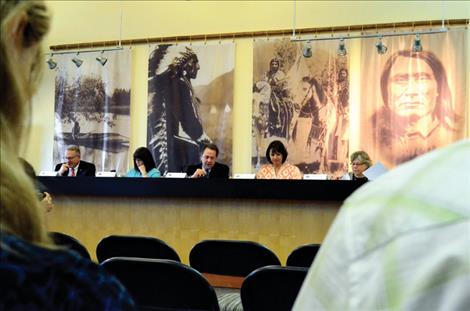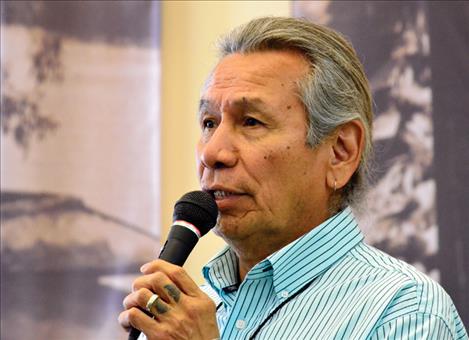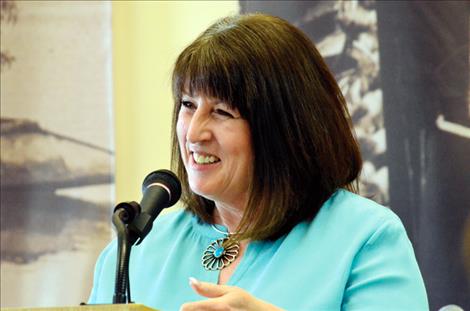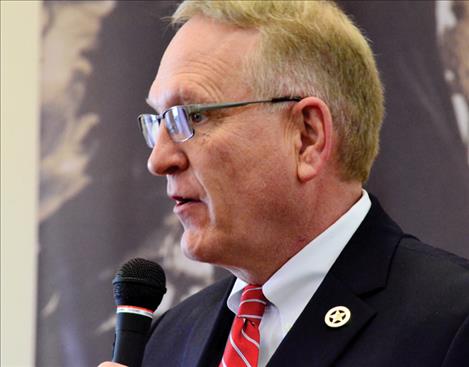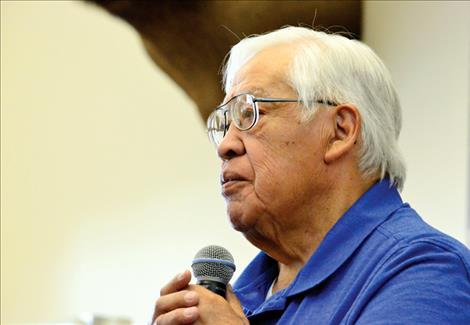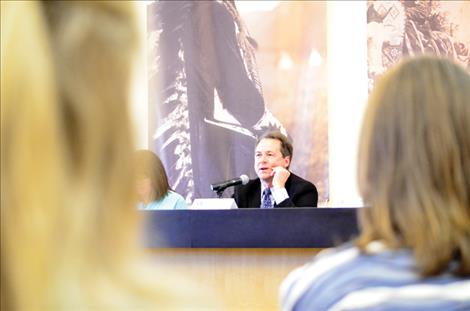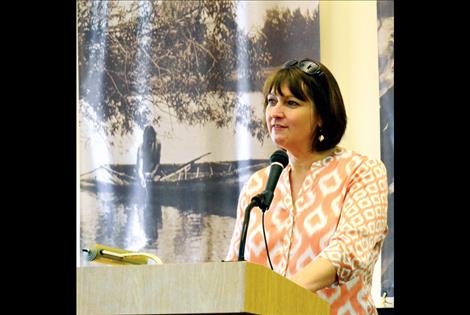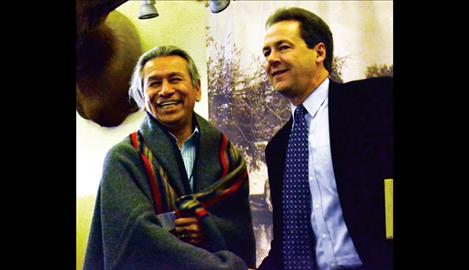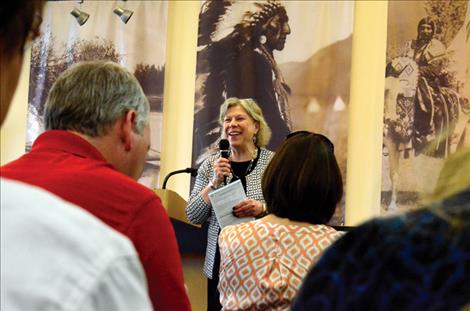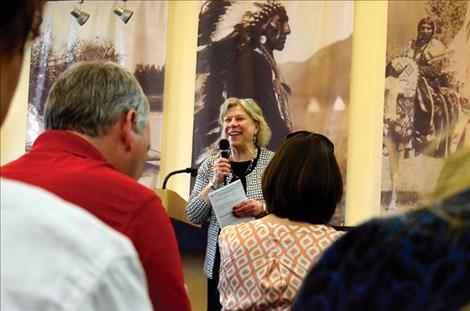State government holds meeting on reservation
Hey savvy news reader! Thanks for choosing local.
You are now reading
1 of 3 free articles.
It was an historic day between two governments on Wednesday, April 20, at the Confederated Salish and Kootenai Tribal Headquarters in Pablo.
In the tribal council room the doors were opened up for the Montana State Board of Land Commissioners to hold their regular board meeting with tribal council members in attendance.
Governor Steve Bullock later explained that to his knowledge it was the first time the Montana government had held a board meeting on a reservation. He opened the meeting by recognizing the historic location.
“For the record, this is a historic meeting,” he said after calling the land board to order. “It’s an honor for us to be here today in the shadow of the Mission Mountains and nearby Flathead Lake. Thank you to all of our friends for allowing us this opportunity.”
Board meetings are usually held in the capitol building with five top Montana elected officials on the board including Governor Bullock, Attorney General Tim Fox, Commissioner of Securities and Insurance Monica Lindeen, Secretary of State Linda McCulloch, and Superintendent of Public Schools Denise Juneau.
Land board members decided to hold the meeting on the reservation to strengthen government-to-government relationships. The meeting was also organized in conjunction with a training seminar.
The two-day Cultural Heritage Training Seminar was held to further build relationships and establish a partnership between the Montana Department of Natural Resources and Conservation Trust Land Management Division members including dozens of foresters and the CSKT Tribal Historic Preservation Department team.
CSKT cultural teachers also shared information during the training seminar about tribal cultural resources that may occur on state trust land including tribal gravesites. Members from both groups attended the land board meeting.
Culture Committee Director Tony Incashola lead a prayer at the start of the meeting. Before he prayed in his own language, he asked the group to think about their families, country, and ancestors.
“Think about why we are here,” he said adding that he hopes the group continues to gather in a similar way in the future. He also asked everyone to remember the sacrifices many tribal ancestors made before people were able to come together for the meeting.
The five Montana government officials who make up the State Board of Land Commissioners give direction to the DNRC Trust Land Management Division in regards to state resources including timber, surface, and minerals.
During the meeting, the board approved six forestry projects across the state for timber sales, and they heard a report about Montana forest health. It was said that although the pine beetle outbreak is waning, 174,000 acres of pine trees across Montana have shown recent mortality. Other insects and diseases also impact forests on a large scale.
The board presented Tribal Council Chairman Vernon Finley and Incashola with gifts of appreciation before a series of speeches began.
“We are very glad CSKT is the recipient of this historic meeting,” Chairman Finley said, welcoming everyone.
Superintendent Juneau said it was a historic honor to be able to have the meeting in the tribal council chambers. She commended the foresters in attendance for their hard work. She said that relationships are at the heart of the cultural training program.
“We started to put in motion what I hope will not only lead to stronger government to government relationships but will also lead to stronger person to person relationships,” she said.
Commissioner Lindeen talked about the importance of protecting and maintaining access to public lands before Attorney General Fox talked about the positive relationship between the tribal and state law enforcement agencies, and Secretary McCulloch said she brought voter registration cards in case anyone wasn’t registered to vote.
After the meeting, Incashola said that the two-day cultural training event also included information about cultural resources on the reservation and throughout the aboriginal territory. Although, he added that during this training cultural teachers were only speaking for the Salish, Kootenai and Pend d’Oreille.
“Even though the tribes are similar, they each have their own ways,” he said. “But no matter where you go or what you do there will be historic sites. To us, those sites are important. They are a connection to our history. It’s important that they are respected.”
Incashola also spoke about the significance of the meeting with the Montana government and the tribal government in attendance.
“It’s a historic event here today,” he said. “The government has made an effort to come here to understand the people that have been here for thousands of years.”















